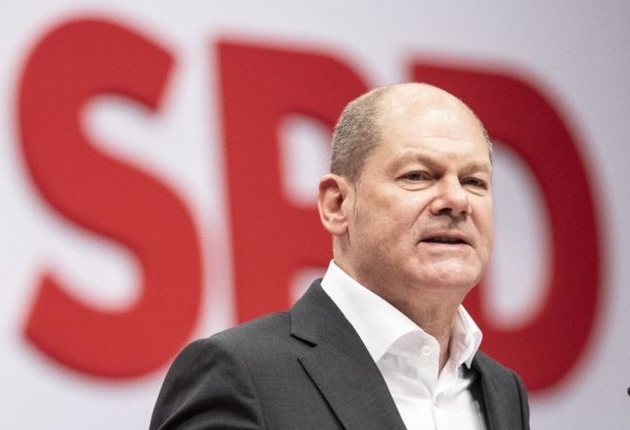German Chancellor Olaf Scholz arrived in Russia for a meeting with President Vladimir Putin. Their talks will take place during the most tense period in relations between the West and Russia. The root of the contradictions is Ukraine.Western media, citing the US authorities, named the date of Russia's invasion of Ukraine - February 16. Does it make sense for the German Chancellor to negotiate with Vladimir Putin about something in such a situation? If he believes that insides about the invasion are speculation, then there is a point.
Fear of a potential Russian invasion of Ukraine is snowballing. Now people are not only talking about a high probability of an attack, which US Secretary of State Anthony Blinken recently confirmed, but they are also naming specific dates - February 16. The American edition of Politico gave such a prediction with reference to the White House. Against this background, Western countries resort to various tools.
On the one hand, they are building up a military presence in Eastern Europe. NATO countries, including the US, France, Spain, the Netherlands, Germany and the UK, are deploying their forces, air force and navy, to the Baltics, Poland, Romania and the Mediterranean. On the other hand, they are increasing financial ($1.5 billion) and military assistance to Ukraine. The United States sent Ukraine 15 aircraft with military cargo, while the British provided anti-tank installations.
Supporting Ukraine, Western countries are in a hurry to save their citizens. The United States, Germany, Australia, Canada, Finland, Latvia, Lithuania, the Netherlands, Estonia, Japan and New Zealand are evacuating their embassies from Kiev and urging citizens to refuse to travel to Ukraine or leave its territory.
The fourth instrument of the West's behavior is negotiations with Russia. Before Olaf Scholz, the head of the British Foreign Office and the Minister of Defense of Great Britain had already visited Moscow, and French President Emmanuel Macron met with Putin even earlier. The British are threatening tough sanctions, Paris is trying to negotiate and dissuade from attacking Ukraine. What can the Germans offer?
Berlin’s and Paris’s positions on Ukraine are fundamentally the same. Both France and Germany want to resolve the conflict in Donbas as soon as possible. Both countries are included in the "Norman format" together with Russia and Ukraine. At the same time, Berlin's interest in peace is much higher, because Germany depends on Russian gas supplies, and this dependence will grow against the backdrop of rising fuel prices in Europe. Scholz cannot refuse to launch the Nord Stream 2 project.
At the same time, Germany is responsible to the US and Ukraine. There are American bases in Germany. The United States gave the green light to Nord Stream 2, but they demand loyalty in a tough course against Russia in return. Therefore, Scholz, during a recent visit to Washington, threatened with anti-Russian sanctions. With regard to Ukraine, Germany fears that it may be considered a "traitor". Since it was Berlin that fully supported the Euromaidan in 2014. Now, at the most crucial moment of "Russia's impending attack," Berlin is forced to lend a shoulder to Kiev. In Ukraine, they are extremely dissatisfied with the words of German politicians that Ukraine has no place in NATO. That is why, before Moscow, Scholz had gone to Kiev and promised him financial assistance in the amount of 150 million euros.
If to speak about the meeting between Putin and Scholz, then, most likely, the new inexperienced German chancellor will not be able to influence Vladimir Putin. Moscow's demand from the United States not to accept Ukraine into NATO will remain in force. Here the Kremlin's position is principled and adamant. The only chance for the chancellor to prove himself is to organize a meeting between Zelensky and Putin, mediated by France and Germany. Such a turn, with modest German influence, could be interpreted as a diplomatic victory for Berlin.






